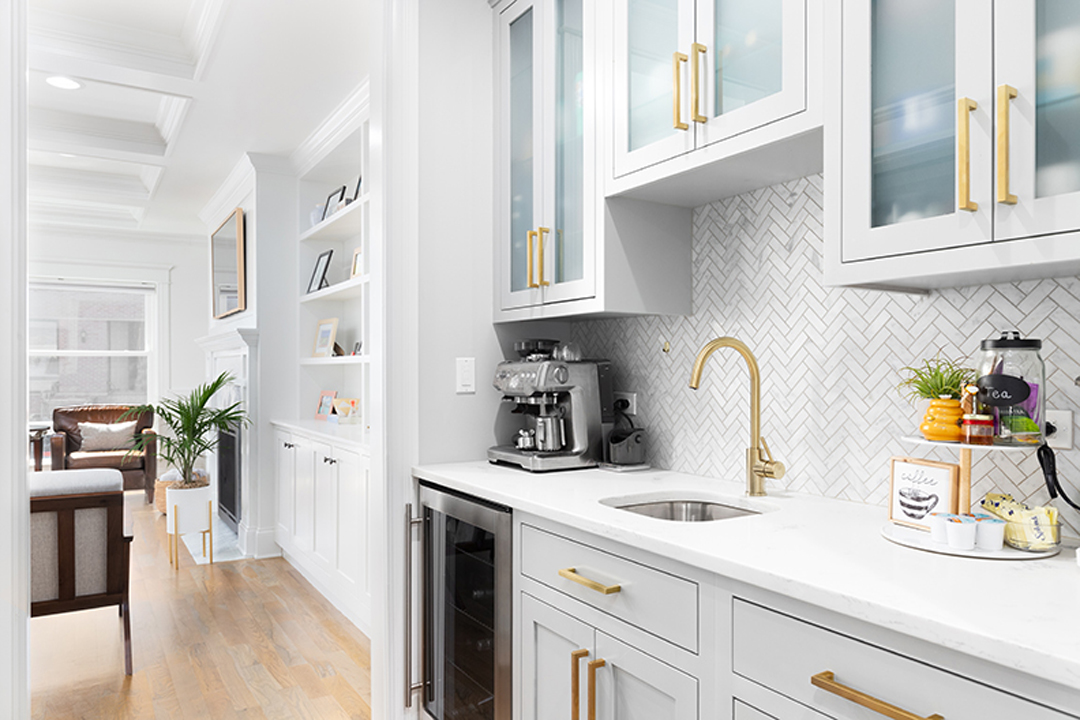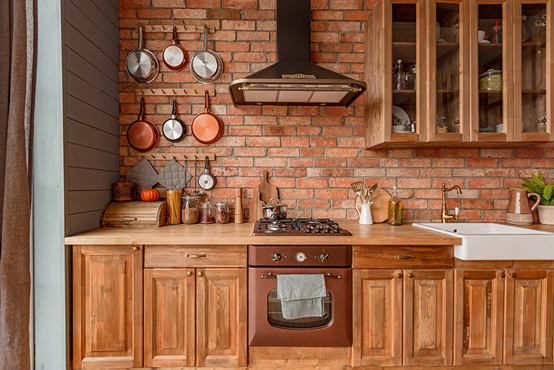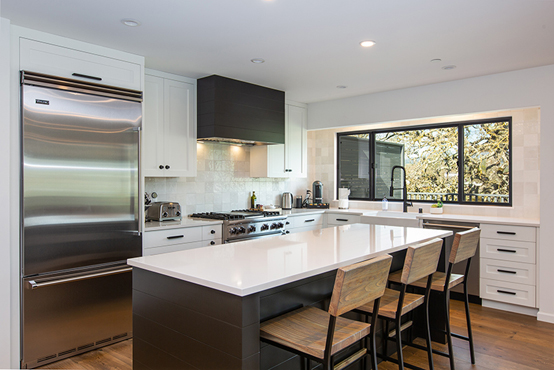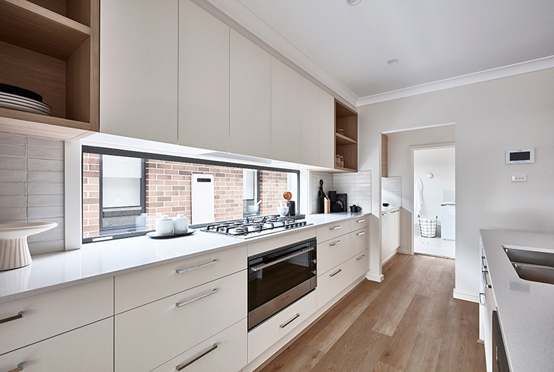The Surging Popularity Trend of Second Kitchens: A Culinary Revolution in Modern Homes

Once considered a luxury reserved for expansive mansions or extravagant estates, secondary kitchens are now becoming increasingly popular in a variety of homes, ranging from suburban residences to urban apartments. This growing trend reflects a shift in the way people approach cooking, entertaining and the evolving role of the kitchen in modern living.
Granted, second kitchens are not necessarily a new thing, nor are they relegated just to upper-crust luxury homes. They've long existed in kosher Jewish residences, as dietary laws forbid the mixing of meat and dairy. Islamic halal cooking and severe allergies also necessitate separate areas for certain ingredients.
luxury homes. They've long existed in kosher Jewish residences, as dietary laws forbid the mixing of meat and dairy. Islamic halal cooking and severe allergies also necessitate separate areas for certain ingredients.
The COVID-19 pandemic also fueled a fresh need for a separate spot where we could unload potentially germ-laden groceries and store more quarantine supplies. Even though the panic of those years is largely over, the added storage still definitely comes in handy today. Add a sink or mini fridge to that oversized pantry and voila, the second kitchen is reborn.
Keith Eisele from Coast Tile elaborates, "Second kitchens we used to think were exclusive to large estates and the ultra-wealthy for many years, but with the shift in how we spend our leisure time sparked by the pandemic and the rise in home renovations, and second-home buyers, the concepts became more real for the people looking to update their living situations. With people starting to spend more time in the home and less time going out, the resurgence of the second kitchen took off."
 The Evolution
The Evolution
Second kitchens go by many names, none all that savory—scullery kitchens, working kitchens or simply "messy kitchens"—and the reason for their existence is to function as the original kitchen was meant to, but can't. Why? Because "Kitchen No. 1" has evolved to such a pinnacle of entertainment perfection that it's mostly just for show. "Kitchen No. 2," hidden behind closed doors, is where all the smoking, steaming, cooking and cleaning takes place.
Traditionally, the kitchen was a utilitarian space tucked away from the prying eyes of guests. "Kitchens weren't really the star of a home like they are now in the modern day. A lot of homes had smaller second kitchens to separate the non-cooking preparations of food provisions from the intensity of the actual cooking that took place in the large kitchen," explains Dennis Gehman, president of Gehman Design Remodeling. "We often saw smaller, second kitchens in homes that were built over 100 years ago, where their main function was to bring in and store the fresh vegetables, produce and meats, essentially away from the heat of the performance kitchen."
However, now as the focal point of the home, the kitchen has undergone a significant transformation. It has evolved from a functional area where meals were simply prepared to a social hub where families and friends gather, creating a demand for larger and more versatile kitchen spaces.
This modern lifestyle places a strong emphasis on entertainment and hospitality and ironically pulls a page from the past for more functionality. Homeowners are now investing in dedicated entertaining spaces, and a second kitchen becomes an invaluable asset when hosting gatherings.
This trend also aligns with the growing popularity of open-concept living, where kitchens seamlessly integrate with dining and living areas. The second kitchen allows hosts to prepare and to serve food without the intrusion of guests into the primary cooking space.
Is  it truly beneficial?
it truly beneficial?
Two kitchens in one house may seem excessive to some unless it's a multifamily house. However, having a second kitchen installed could be just what your home and family need, especially if you are simply looking for more convenience.
"The first thing that comes to mind is functionality. Especially coming off the holiday season, when hosting a group of people and preparing food for everyone, having more space is everything. Having a second oven, stove top, counter space, etc. It's essential in taking out the stress of the event preparations," says Eisele.
If you want to take it a step further, bringing in a catering company or a private chef to prepare food and drinks for a party can often be a challenging task. Having a secondary kitchen allows the event to have a more upscale feel and functionality for both the caterer and the homeowner.
Another key driver behind the surge in second kitchens is the increasing prevalence of multigenerational living arrangements. With more families choosing to live together under one roof, the need for separate cooking spaces has become evident.
"Second kitchens offer privacy, autonomy and convenience for different generations sharing the same living space, allowing them to prepare meals without disrupting the daily activities of others. It really helps provide a more welcoming and adaptable atmosphere for in-laws or aging family members who may be sharing a living space," shares David Cerami, president of HomeTech Renovations.
Added Property Value
A kitchen is one of the most crucial parts of a home—so much so that having one can distinguish a place as a residence. Installing a second kitchen greatly increases the value of your home. This is also especially true, as mentioned earlier, with the number of multigenerational households increasing, as living expenses rise.
"During the pandemic, more and more people sought ways to make conducting their lives at home easier, such as by installing a home gym, another home office and a second kitchen. In spite of increased demand for homes with two kitchens, they remain fairly rare, so having a second kitchen installed can increase the value of your home.," Gehman says.
Eisele adds, "There is no doubt that a second kitchen increases the value of your home. A second kitchen is like a heated floor, once you have one, you cannot imagine life without it. It becomes a selling point for any realtor and a conversation piece for everyone who walks through the door."
Of course, when it comes time to find the right remodeling contractor to take on a project of this nature, you'll want to do your homework.
"Referrals are the best way to find a remodeling contractor," says Dan Dilworth, owner of Dilworth's Custom Design. "Ask your friends, neighbors and coworkers. Use social media. There are new 'neighborhood' apps that are increasing in popularity. You can use these to ask others in your neighborhood if they've had similar work done and how they felt about their contractor. Local lumber yards and realtors are other good sources."
Dilworth also stresses the need of having a budget in place from the onset of the project. "It's almost impossible to decide what options you want if you don't have a budget already in mind," he says.
The popularity trend of second kitchens signals a profound shift in the way people view and utilize their living spaces. Whether designed to address specific living arrangements, culinary pursuits or entertaining, the second kitchen has become a versatile solution to address the diverse needs of modern homeowners. As this trend continues to gain momentum, we can expect to see further innovations in kitchen design, catering to the evolving lifestyles and preferences of individuals and families alike.
RESOURCES
Coast Tile
Egg Harbor Township, N.J.
(609) 646-9346
CoastTile.net
Dilworth's Custom Design
Phoenixville, Pa.
(610) 917-9119
DilworthsCustomDesign.com
Gehman Design Remodeling
Harleysville, Pa.
(215) 515-2020
GehmanRemodeling.com
HomeTech Renovations
Lower Gwynedd, Pa.
(215) 876-8413
HTRenovations.com
Published (and copyrighted) in House & Home, Volume 24, Issue 2 (Luxury Living Spring 2024)
For more info on House & Home magazine, click here.
To subscribe to House & Home magazine, click here.
To advertise in House & Home magazine, call 610-272-3120.
